On Saturday the 29th March we held the second day of our beekeeping for beginners course. In the morning session there were two very interesting presentations given by Steve, one of our most experienced members, that covered swarming, measures to prevent it, methods to mitigate it and how to collect a swarm when it does occur. Steve also covered bee diseases and pests; AFB, EFB, Sac brood, Chalk brood, Nosema, wax moth varroa and the methods and legal requirements regarding their reporting
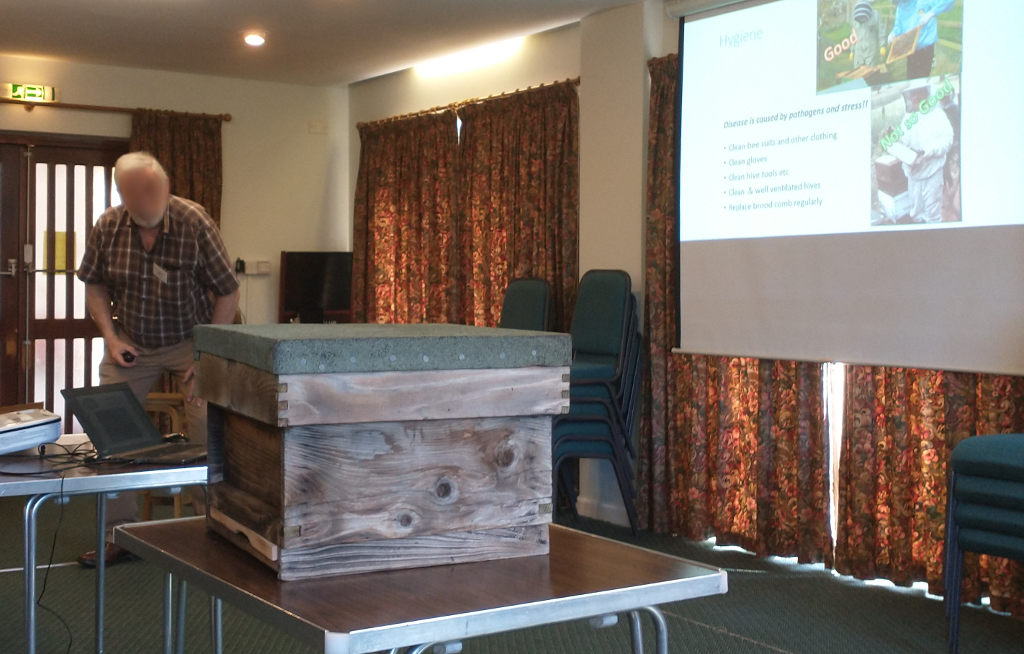
In the afternoon session there were presentations on extracting honey, labelling rules, mead making, soap, cream and candle making. Regulations covering these activities were covered.
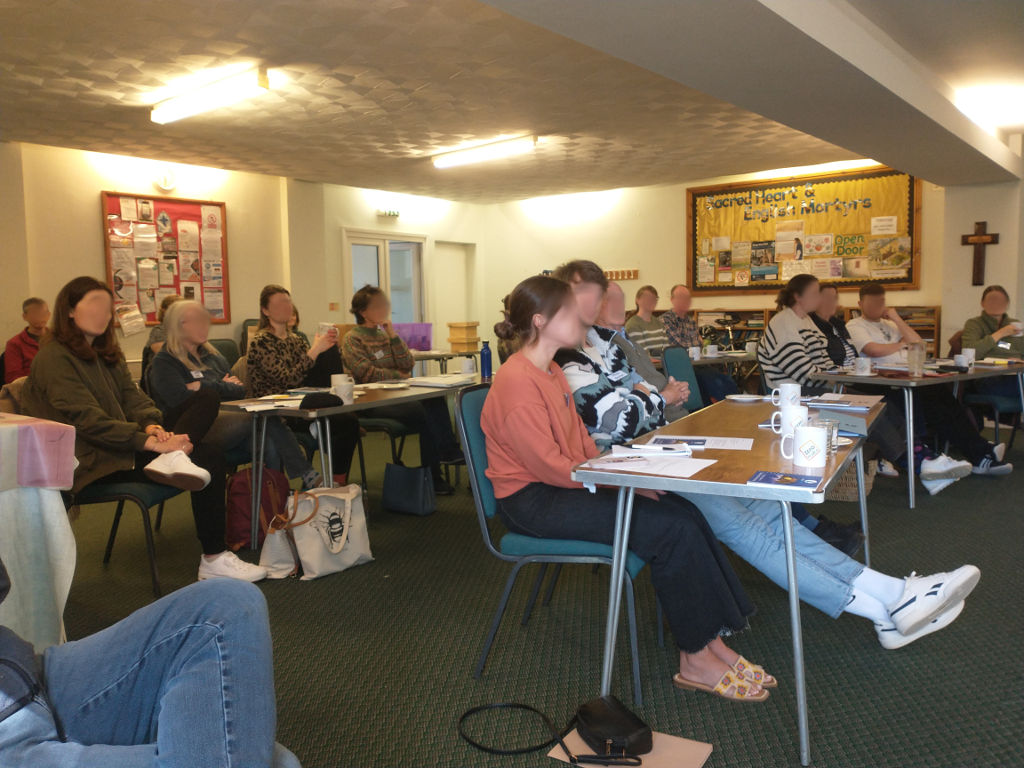
At the end of the day Samantha gave a presentation on siting hives, obtaining bees and the benefits of joining a local beekeeping association (insurance, support, mentoring and on going education). The last session of the day was, as is our tradition, given by a new beekeeper. Steve, who had only started keeping bees last year. His talk was given, warts and all, about how his first year went, amusing, informative and engaging.
We are planning to hold our next beginners course in March 2026 and if you would like to register for it you can use our contact page
Archives: March 2025
Congratulations
We are pleased to note that two of our members, Louisa Richards and Helen Rathbone have both sat the BBKA Module 1 (Honey Bee Management) examination and passed with a distinction and a credit respectively. Well done to the two of you!
2025 Beginners Course - Day 1
This weekend was the first day of our beginners course, where we do our best to teach a group all the basic information they need to start keeping bees.
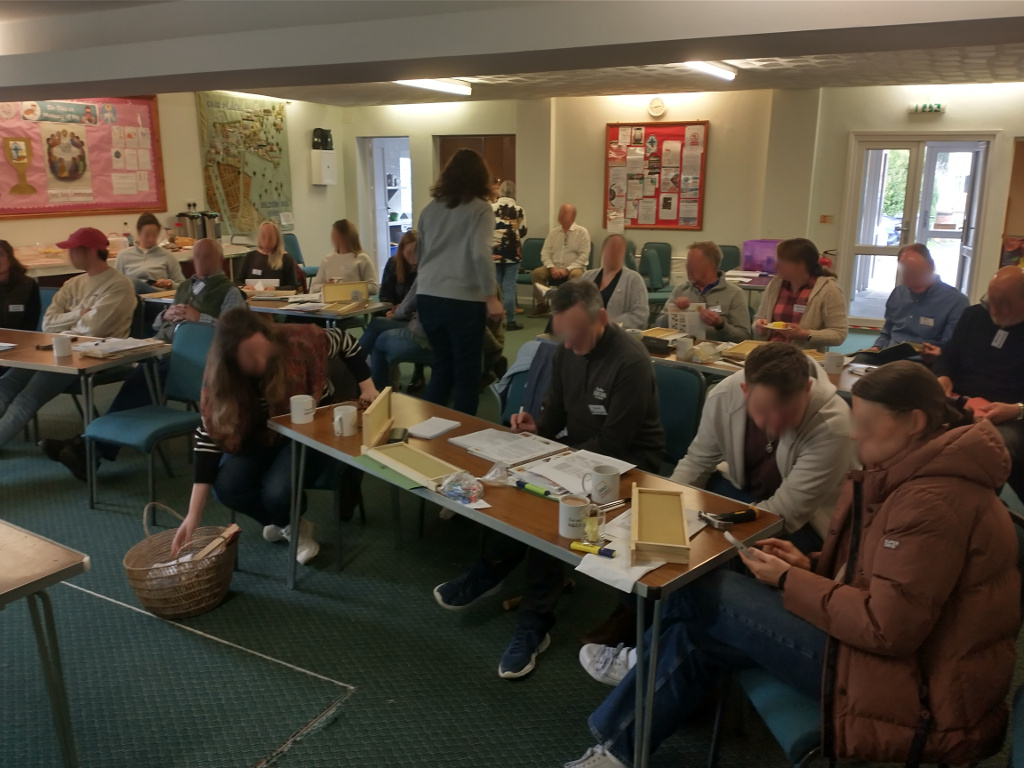
This year the course was fully booked, with a few people on a waiting list in case someone pulled out at the last minute. On day one we covered a lot of material...
Role of Queens, Workers and Drones in maintaining integrity of the colony. Development times of casts and why they are important in managing bees. Substances collected by bees and their purpose. The Winter Cluster, stores, impact of winter, colony development during spring and into summer. Disease treatment and feeding
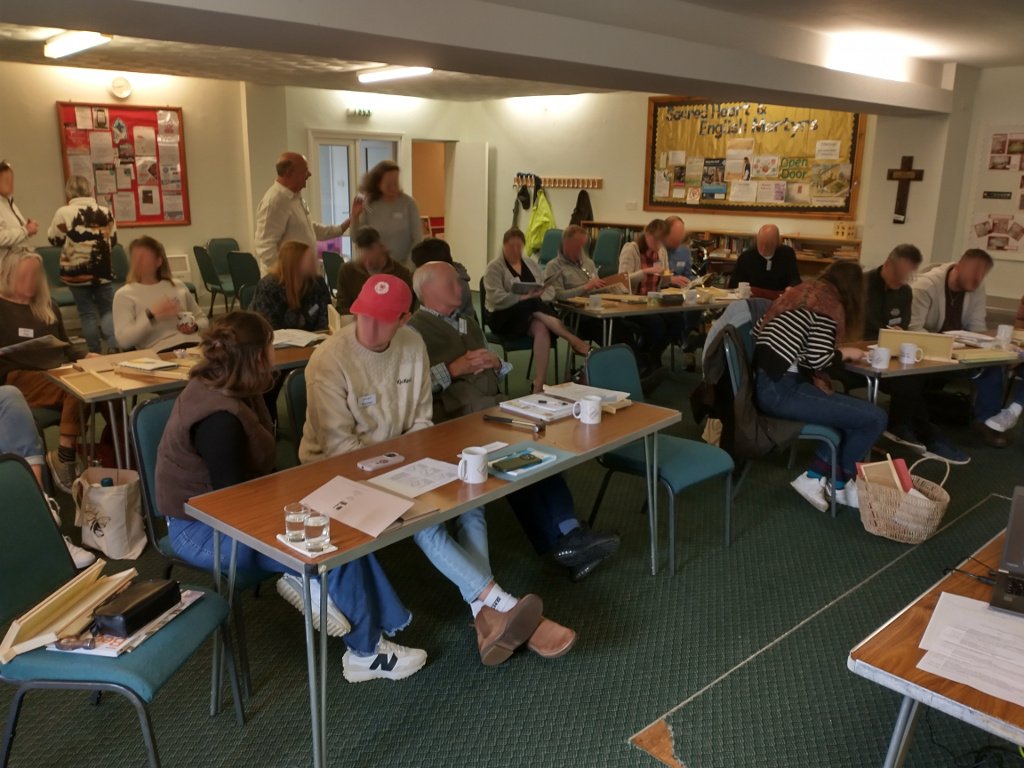
On day one we also covered the equipment needed for Beekeeping...
Structure of a removable frame hive, Personal protective equipment, Hives and accessories, Storage space, Hive types, New or second-hand - pros and cons, Cost of equipment, Hygiene
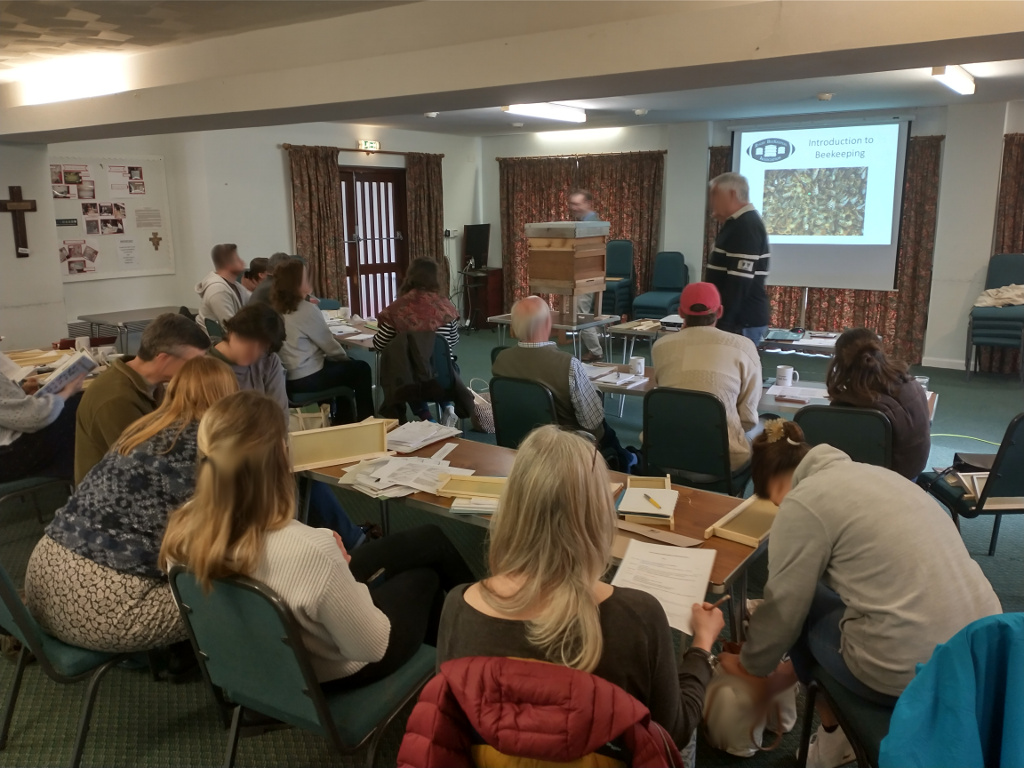
Inspecting colonies was also covered with areas covered such as;
Health and well-being of bees, Why we inspect once a week in the Spring, What to look for during an inspection (Hoopers 5), How to hold combs, Disposing of wax, Hygiene between hives/apiaries/tools/clothing, Stings - protection and safety of self and public, Finding and marking queens, keeping records.
At the end of the first day all the attendees seemed to have really enjoyed themselves and are looking forward to the second day.
Monthly Meeting - Queen Rearing
This month Dave Bonner from the Coventry Beekeepers Association visited us to give a presentation on queen rearing using the Miller method. At the start Dave explained he was going to condense eight weeks of manipulations on two colonies of bees into a 60 minute talk and tha it may be a little pacey!
However, although the who process involves many steps, each one was explained perfectly by Dave and by the end of the talk most people, many taking notes throughout, had a good understanding of what needed ot be done.
Dave gives his talks to raise funds for Bees Abroad, a very worthy charity that trains people in Africa to maintain their own honey bee colonies and in so doing generate a valuable cash crop, honey. This income allows them to provide some of the basic necessities in life.